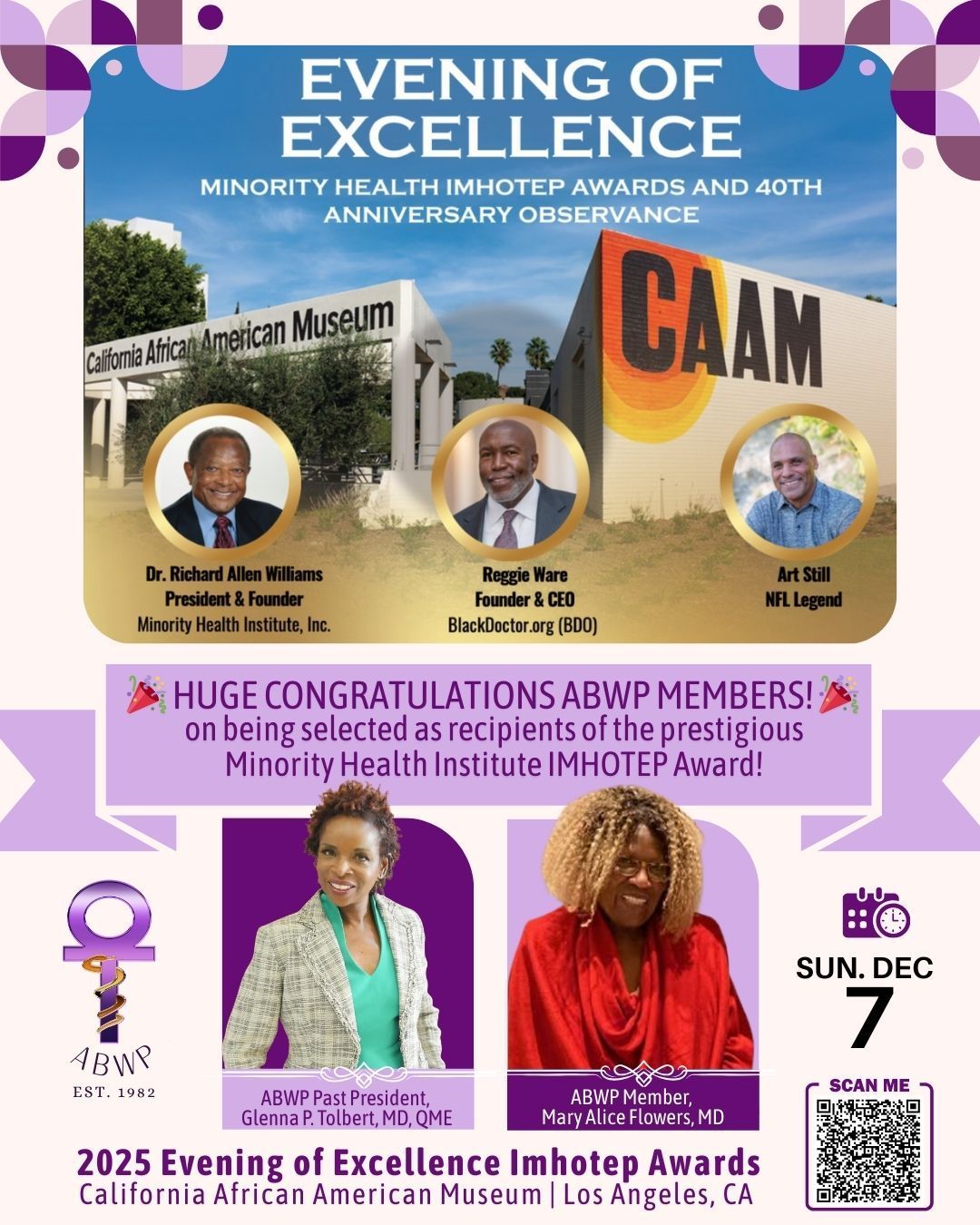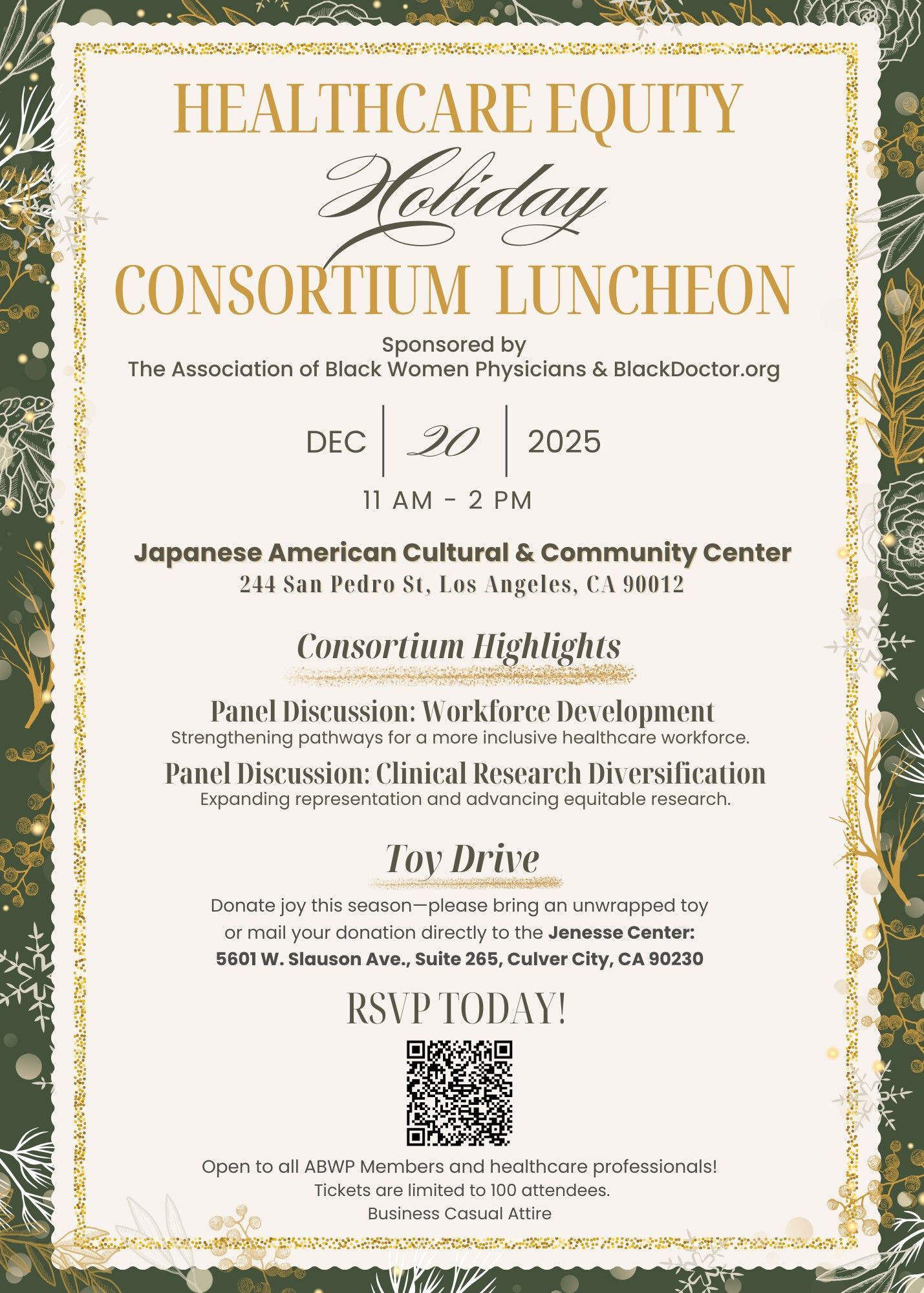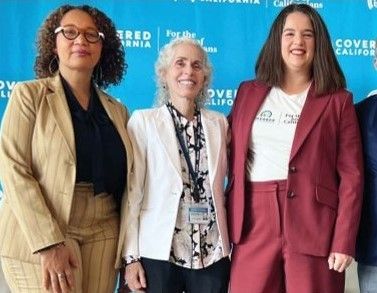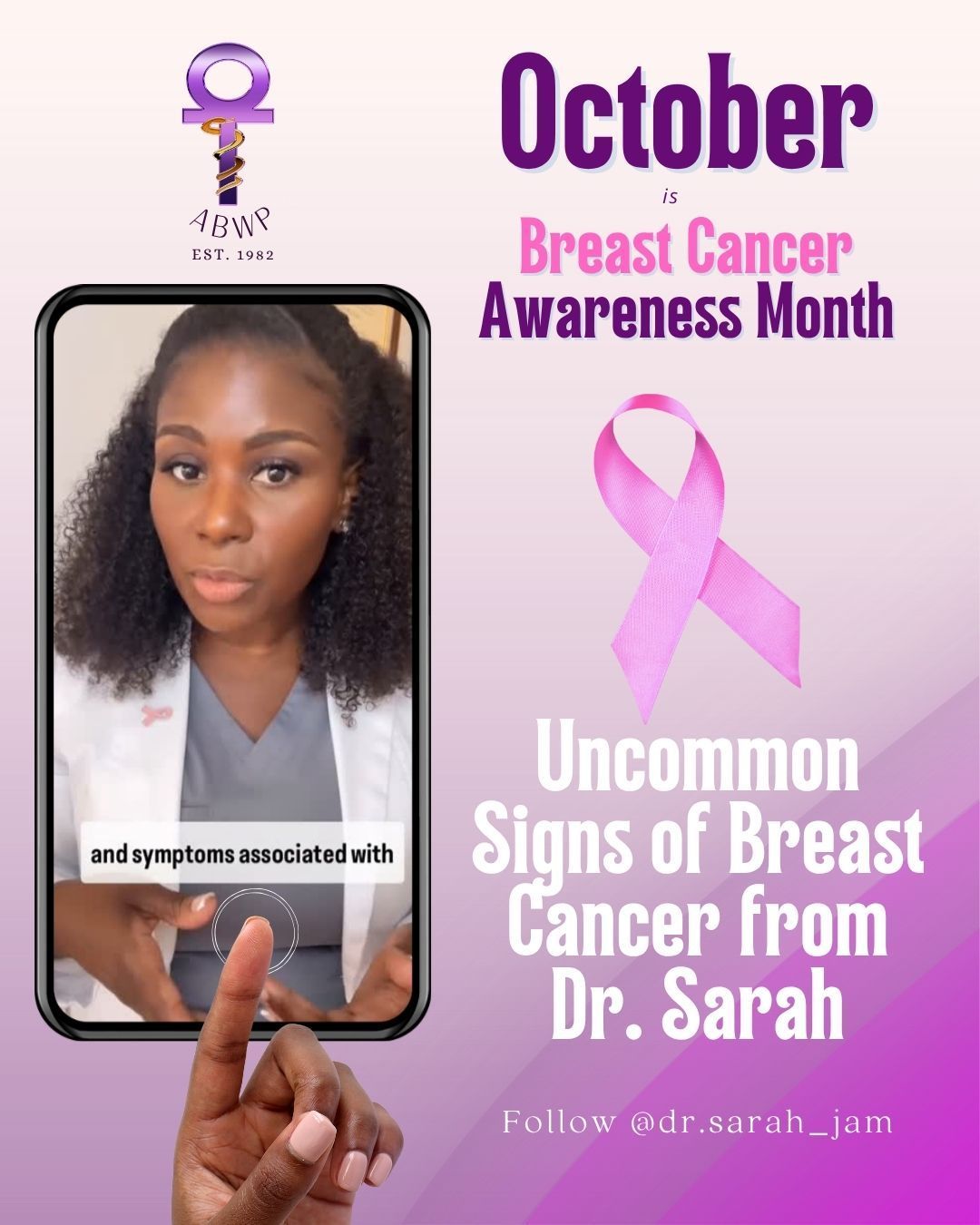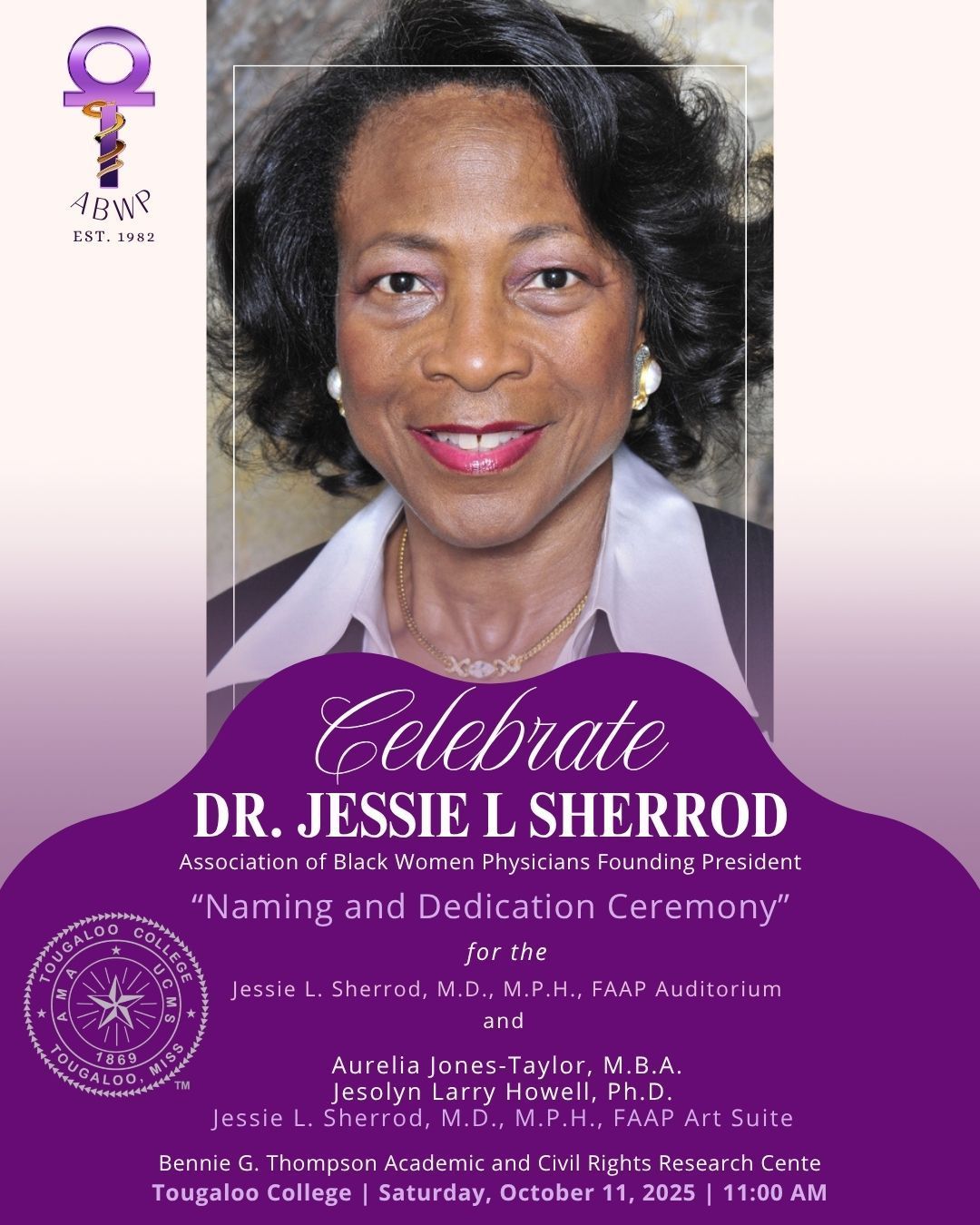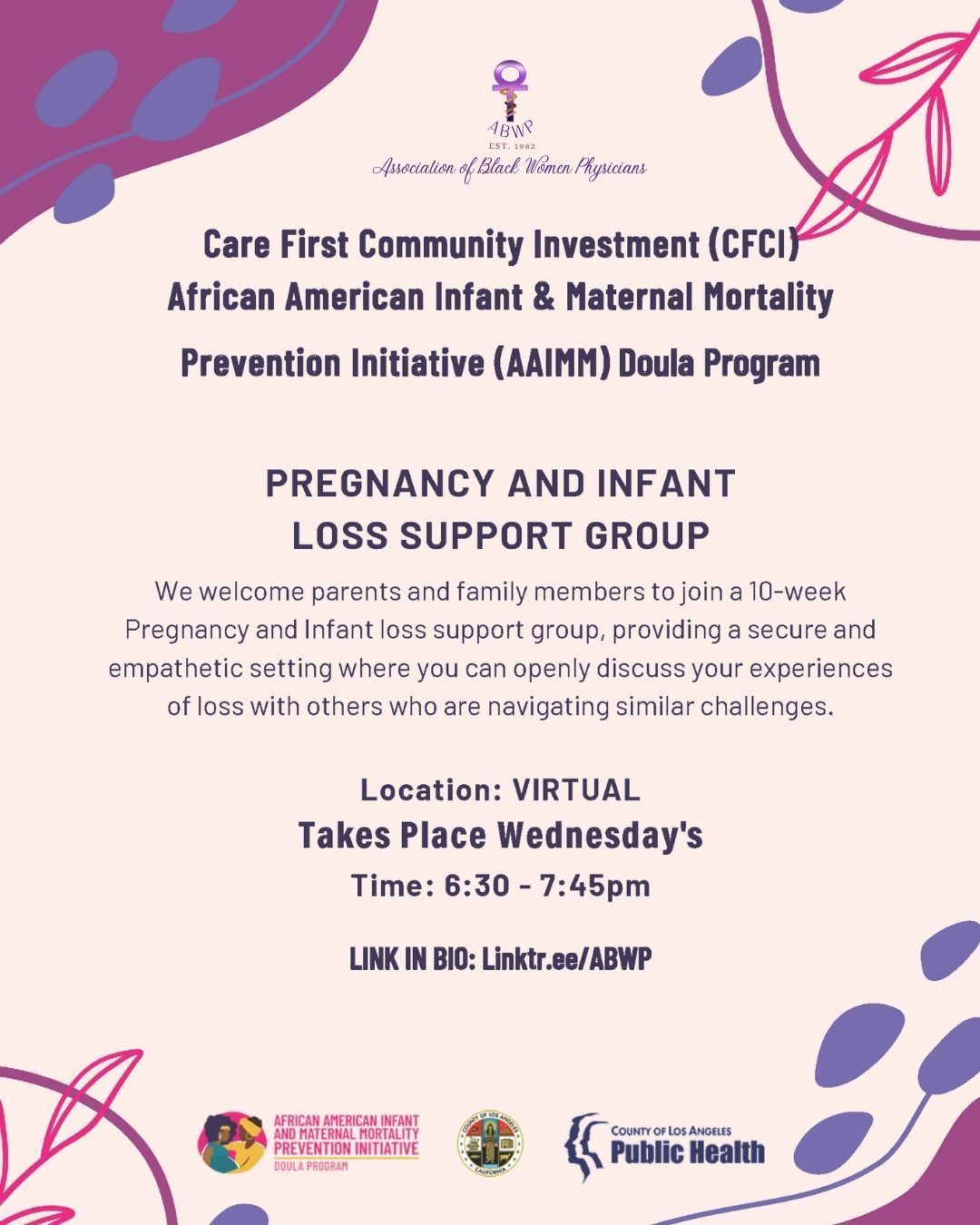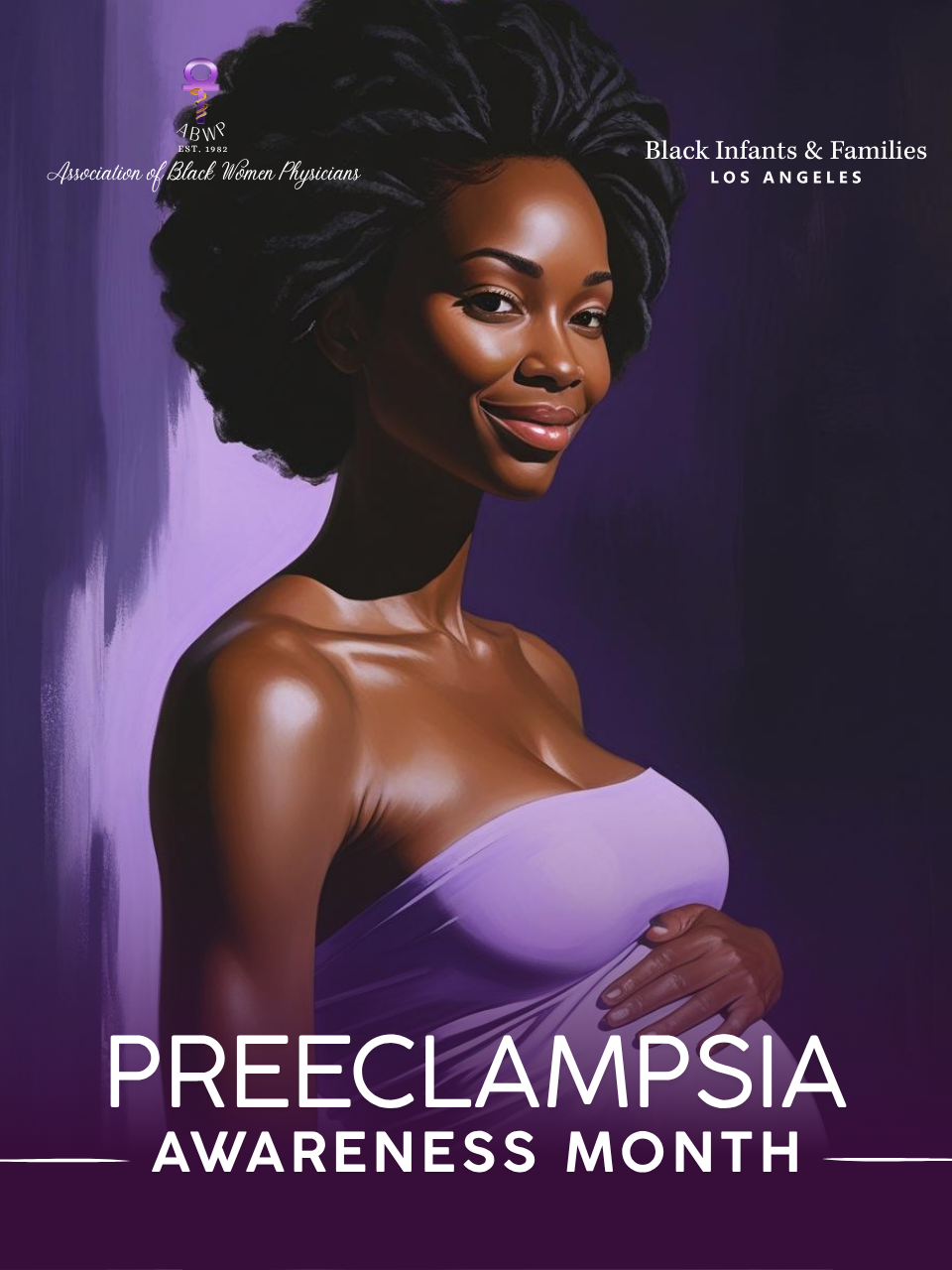A Message of Honor for Former President Jimmy Carter
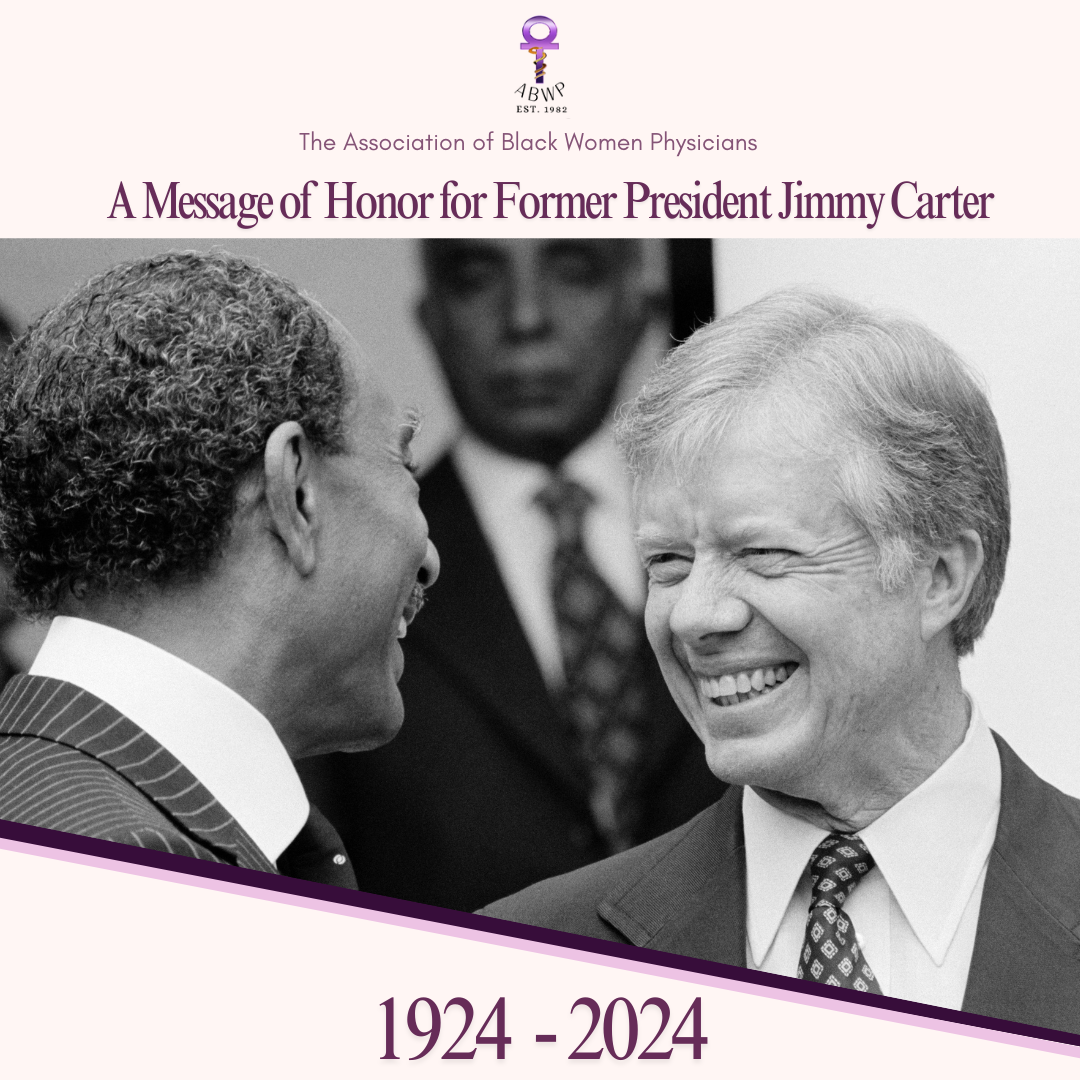
A Message of Honor for Former President Jimmy Carter
The Association of Black Women Physicians (ABWP) joins the nation in honoring the extraordinary life and legacy of former President Jimmy Carter. A tireless advocate for justice, a champion for human rights, and servant leader, President Carter’s impact on civil rights, global peace, and health care has left an indelible mark on our society and the world.
President Carter’s commitment to justice began early in his political career, as Governor of Georgia. In his 1971 inaugural address, he boldly declared, “the time for racial discrimination is over” setting the tone for his leadership, where he worked to dismantle systemic barriers. His presidency extended this commitment, boldly acting to address racial and economic inequalities and promote access to education and health as fundamental rights.
In 1977, President Carter appointed Andrew Young as the United States Ambassador to the United Nations, the first African American reflecting Carter’s belief in diversifying leadership and amplifying marginalized voices. Young’s tenure strengthened U.S. relationships with developing nations and embodied Carter’s vision for global cooperation and justice.
A steadfast steadfast commitment to diplomacy and human rights defined President Carter’s presidency. He recognized Panama’s sovereignty and peacefully transferred control of the canal, resolving decades of tension, and reflecting his belief in fairness. Brokering the Camp David Accords, and negotiating the release of American hostages in Tehran exemplified his diplomatic efforts. In each instance, Carter’s leadership, demonstrated the power of diplomacy to bring change amid significant opposition.
President Carter’s relationship with Coretta Scott King reflected his deep connection to the civil rights movement. Collaborating frequently, Carter supported efforts to preserve Dr. Martin Luther King Jr’s legacy. In 1980, President Carter signed Public Law 96-428, which established the Martin Luther King, Jr. National Historical Site, ensuring that Dr. King’s contributions to justice and equality were preserved.
President Carter’s administration also made significant strides in education launching the White House Initiative on Historically Black Colleges and Universities (HBCUs), ensuring these vital institutions received much-needed support. By directing funding to HBCUs, President Carter helped expand educational access and promoted their unique role in shaping future leaders.
Beyond his presidency, President Carter lived his Christian values by uplifting marginalized communities. With Habitat for Humanity he built homes and hope for countless families. Through the Carter Center, he used the power of the presidency to save hundreds of thousands of lives through global initiatives addressing disease eradication and election integrity. His enduring commitment earned him the Nobel Peace Prize in 2002.
Reflecting on President Carter’s life, we are reminded of his words: “We can choose to alleviate suffering. We can choose to work together for peace. We can make these changes — and we must.” These words challenge us to continue his work, striving for justice and a better future for all.
We extend our deepest condolences to the Carter family and join the nation in celebrating the remarkable legacy of a man who believed in the power of service, compassion, and a more equitable world.
More ABWP News
